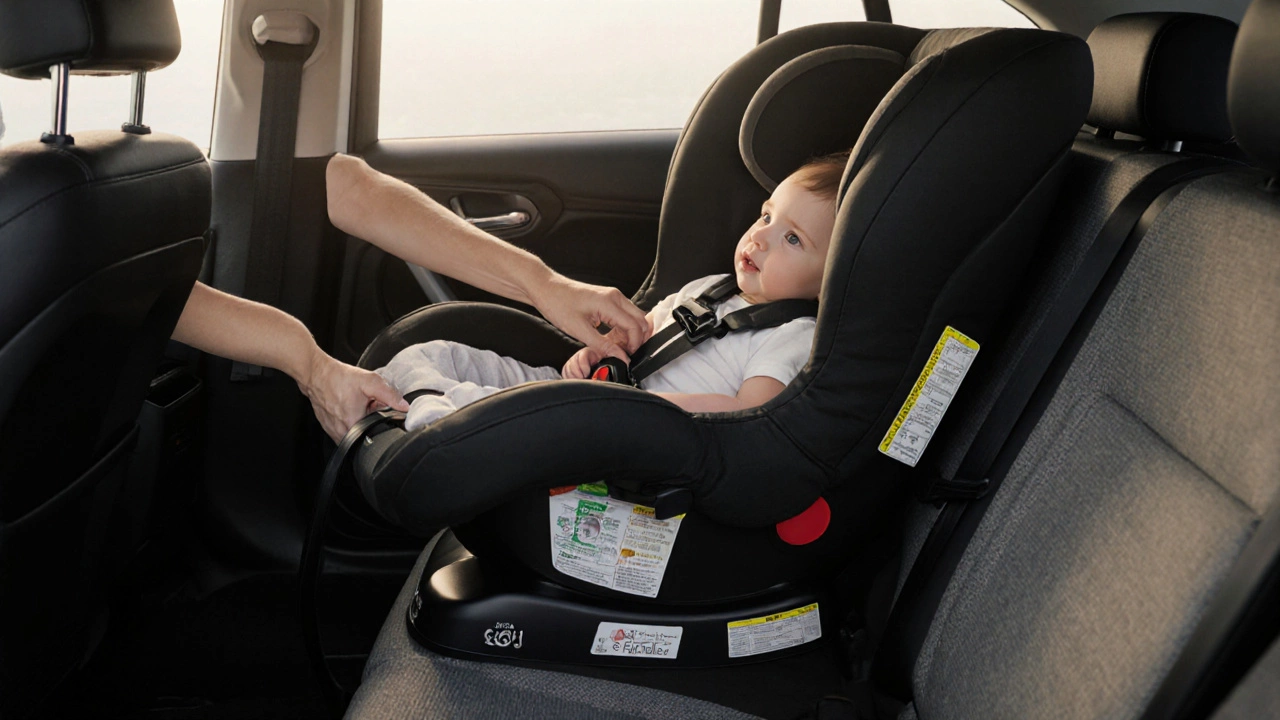Car Seats: Simple Tips for UK Parents
Choosing the right car seat can feel overwhelming, but it doesn’t have to be. Whether you’re picking your baby’s first seat or moving to a booster, the key is safety, fit and staying within UK regulations. Let’s break down the basics so you can get the right seat quickly and keep your little one safe on every journey.
When to Move to a Booster Seat
Most children outgrow a rear‑facing seat around 15 kg, which is usually between 3 and 4 years old. After that, a forward‑facing seat with a harness works until they reach the booster’s weight limit – often 18 kg or more. The UK law says children must use a booster until they’re at least 135 cm tall, typically around 8‑12 years. Check the label on each seat for exact limits and follow them strictly.
Making Sure the Seat Fits Your Car
Not every seat fits every car. Measure the space behind the front seats and compare it to the seat’s width and base depth. Look for a seat with a flexible base or an adjustable headrest if you have a compact vehicle. Most modern seats use Isofix anchors – a quick, secure way to attach the seat without straps. If your car lacks Isofix, the top‑tether and belt route are reliable alternatives, just be sure the belt is snug and the angle is correct.
Installation can be tricky, but you only need a few steps: place the seat at the correct angle, lock it into the anchors or belt, then tighten the top‑tether. A good test is the “lean back” check – the seat shouldn’t move more than an inch side‑to‑side or front‑to‑back when you push at the base.
Many parents wonder if hospitals provide a car seat after birth. The short answer is no – UK hospitals expect you to bring a suitable seat for the ride home. Some trusts may let you borrow a seat for a few days, but it’s safest to have your own, properly installed seat ready before discharge.
Car seats aren't forever. Most manufacturers set an expiration date 6‑10 years from the date of manufacture, found on the label. The plastic can degrade over time, and safety standards evolve. If you can’t find the date, call the brand’s customer service. Re‑using an old seat after a crash, even if it looks fine, is risky – replace it immediately.
Keeping the seat clean helps it last longer. Use a mild soap and a soft cloth, and avoid harsh chemicals that could weaken the straps. Regularly check the harness for wear, and make sure the buckles click securely.
Finally, trust your instincts. If a seat feels uncomfortable for your child or difficult to install, try a different model. The best seat is the one that fits your car, fits your child’s size, and fits your confidence. Happy and safe travels!

When Can I Switch My Child from a Car Seat to a Booster Seat? UK Guide 2025
Find out exactly when to switch your child from a car seat to a booster seat in the UK. Learn the legal requirements, safety tips, and common mistakes to avoid in 2025.
view more
Should I Move My 5-Year-Old to a Booster Seat? A Practical Guide for UK Parents
Find out if it's safe and legal to move your 5-year-old to a booster seat in the UK. Learn when to switch, what to look for, and why staying in a harness longer is the safest choice.
view more
What Is So Special About the Nuna Car Seat?
The Nuna car seat stands out for its safety-focused design, easy installation, and durable comfort. Parents praise its one-hand adjustments, machine-washable fabrics, and FAA approval. It's not the cheapest, but it's built to last.
view more
Driver vs Passenger Side Car Seat Placement: Which Is Safer?
Learn which side-driver or passenger-is safest for car seat placement in the UK, with legal rules, crash data, pros and cons, and a practical checklist.
view more
When Should Kids Switch to a Booster Seat? UK Car Seat Weight Guidelines
Not sure when your child can swap their car seat for a booster? Here’s everything about weight limits, age rules, and car safety in the UK, plus expert tips.
view more
Does the Hospital Provide a Car Seat After Birth?
Curious if hospitals supply a car seat for your newborn? This article clears up what parents can expect before heading home after delivery. Find out why car seats are required by law, how hospitals handle this rule, and what you'll need to bring yourself. We’ll look at some clever tips for first-time parents so you avoid stressful surprises. Stick around to make sure your newborn’s ride home goes smoothly.
view more
Finding the Perfect Car Seat for Your Vehicle: Tips and Compatibility
Exploring the nuanced world of car seats and their compatibility with different vehicles can be a daunting task. While not all car seats fit seamlessly into every car, understanding the factors such as size, design, and vehicle specifications can significantly aid in making the right choice. This article delves into the specifics of fitting car seats, offering practical advice and tips for parents looking to ensure maximum safety and convenience. Discover the common challenges and solutions to installing car seats properly, and how to navigate the wide array of options available in today's market.
view more
Do Car Seats Really Expire? Essential Facts Every Parent Should Know
Car seats are not timeless, and like many safety devices, they come with an expiration date. This article explores why car seats expire, what factors contribute to their lifespan, and how parents can ensure their child’s safety by understanding these details. It debunks myths surrounding car seat longevity and provides practical tips for choosing, maintaining, and replacing car seats. The goal is to keep young passengers safe while traveling.
view more




